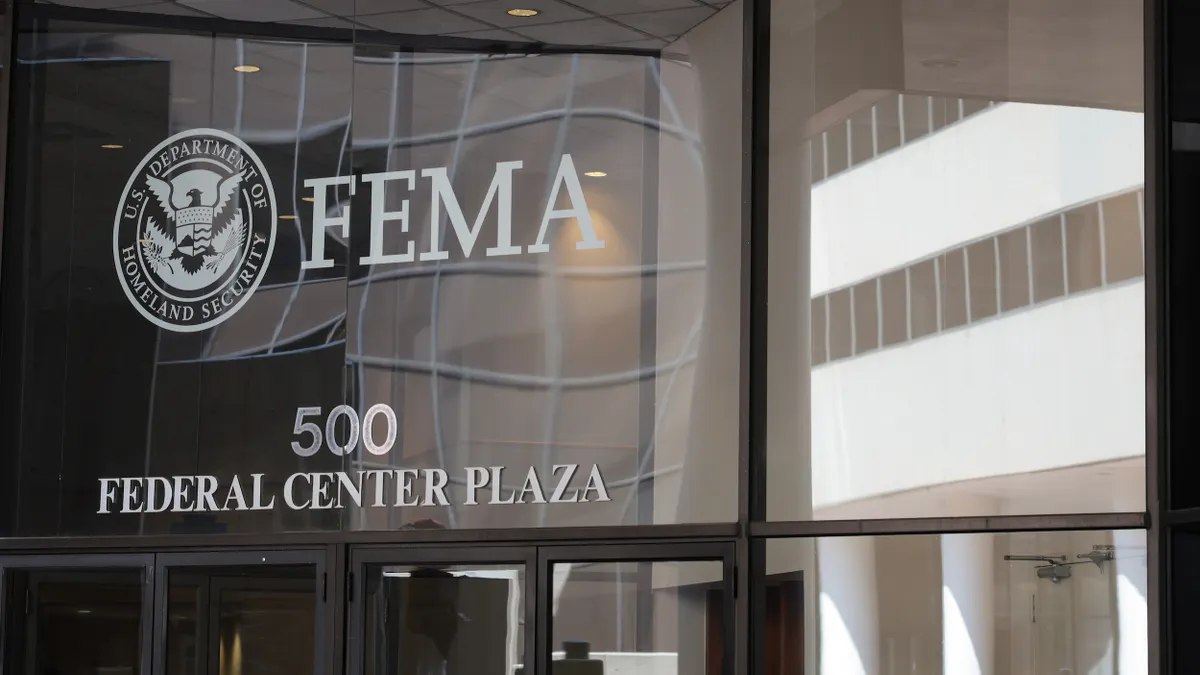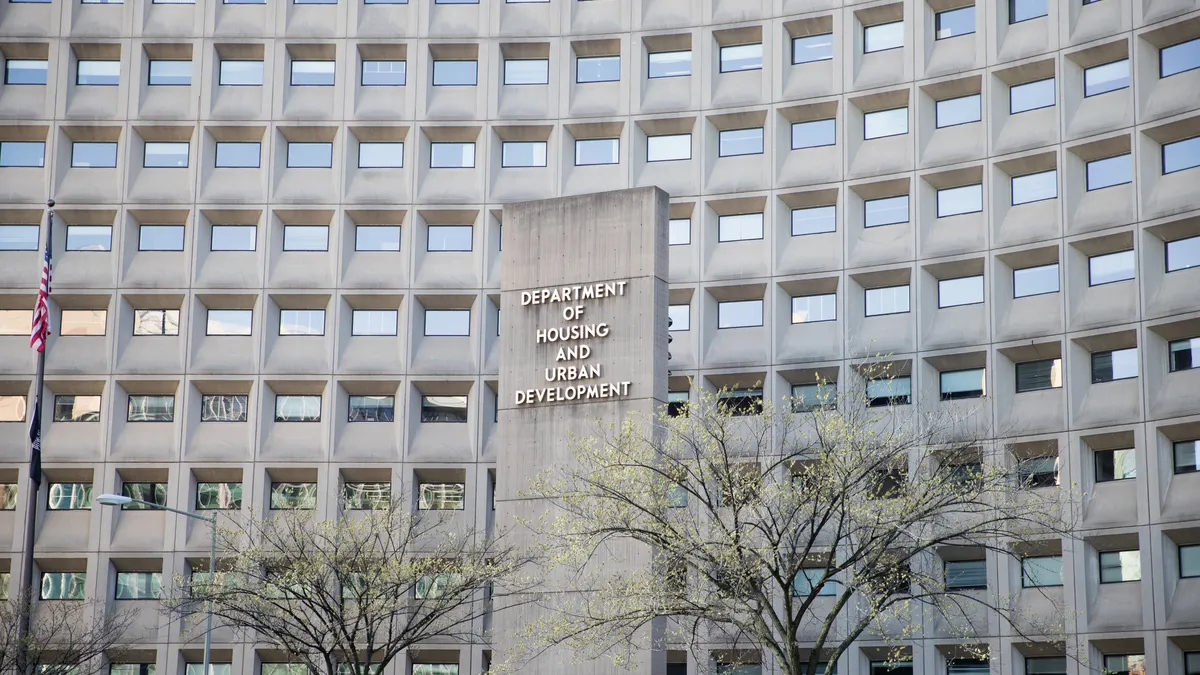During a recent Axios 360 event, Chicago Mayor Rahm Emanuel and Tulsa, OK Mayor G.T. Bynum took to the stage to discuss the future of work in cities, with an emphasis on inclusion and modernizing city services. And, despite the two mayors’ differences, many of the same themes emerged.
Smart Cities Dive broke down the conversation with the mayors to highlight their main talking points related to work and leadership, as well as how to effectively leverage data collection and other smart city advancements.
Education first
Both mayors repeatedly stressed the importance of education to build and sustain a strong workforce of the future. Elementary and high school education is important, but so is education beyond that level, Bynum said. "One of the greatest indicators of a city’s long-term viability and success is the educational system we have," he said.
Tulsa performed an analysis on its census data and discovered that advanced degrees provide the greatest correlation to high per capita income among residents. "That changed the discussion for us,” he said, explaining that previously, the city had been singularly focused on boosting high school graduation rates and not on the number of residents earning advanced degrees.
The data analysis results prompted a strategy shift. "I think that speaks to this notion of the future of work, which is continuous education," Bynum said.
Emanuel described updates to Chicago’s educational standards to keep up with modern needs, namely requiring all public school students to take at least one coding class in order to graduate, starting next year.
"If you think the dual language was English and Spanish, I’m telling you that coding is the dual language. It’s the second language today. You’ve got to have it, you can’t graduate [without it]," he said.
Emanuel touched on Apple’s partnership with the city on coding classes, but he said such knowledge also can be obtained through numerous other companies’ partnerships with high schools and community colleges. Adults already in the workforce can take advantage of lessons, too.
In addition, ongoing education doesn’t always have to take the form of formal classes at a school. "In Tulsa, we’re fortunate to have excellent higher ed institutions, but we also have businesses that will bring somebody on that may not have the type of training" they’re looking for, as long as a candidate has the right work ethic and a willingness to learn, Bynum said.
"Every educational tool has to be upgraded to provide people the tools to succeed in the 21st century,” Emanuel said.
Inclusivity
Sustaining a city’s workforce, and consequently, its economy, requires getting all residents involved, the mayors said.
"The biggest thing ... is inclusion. Making sure that everyone can participate, both in the economy and in changes," Emanuel said. "I cannot have people look at this downtown, work in the downtown, and have a part of the city cut off ... from the symbolism that this economy means."
Chicago leaders consider inclusion a core principle, as evidenced in a variety of educational programs, such as coding and tech knowledge.
"Our high schools, our elementary schools and our community colleges have to be part of the economy of tomorrow in giving all our kids the tools to succeed. Everybody, regardless of where you go to school, has that opportunity," Emanuel said. He also explained the city’s initiative to offer scholarships and reduced community college tuition to students that maintain a B average during their advanced studies.
"Too many people are on the outside breathing on the window and creating frost where they cannot be included," he said.
When Bynum was running for mayor in Tulsa, he noticed that many people diminished young people’s role in politics and their communities, and therefore excluded them from getting involved in those areas.
Bynum’s research uncovered that young residents’ level of involvement hasn’t changed over time, but the way they go about it and their views on politics has. Instead of outright political involvement, "they traded it out for nonprofit involvement. So we decided to make involvement in government locally look more like nonprofit work," he said. "Selflessness [and] altruism, not about partisanship and self-promotion." That tactic reportedly fostered inclusivity and increased young voter turnout by 55%.
Tulsa leaders also recognize that the workforce is transforming away from company culture to one where employees are individual contractors.
"We want to be the kind of place that isn’t just focused on recruiting businesses," Bynum said. Rather than prioritizing luring big companies with incentives, the city is "trying to build the kind of place that attracts young professionals," because "we’re aware of the fact that by the time a person reaches 34 years of age, their odds of relocating for a job drops to almost zero." The city has spent the past decade boosting its livability and attractiveness to young residents by adding amenities like bus rapid transit, parks and gathering spaces.
Innovation in smart cities
The cities' push toward innovation has created a booming smart city industry and changes in municipal services.
Chicago is working to convert all streetlights to LEDs on a smart grid model, so "we’ll know when a light is about to go out a week ahead of time," Emanuel said. The city also is converting its 311 system to be mobile device compatible, instead of landline-centric, so residents can text to receive information and services. Plus, the city just announced a sanitation app.
"It’s about modernizing basic neighborhood services and making them more personal, more direct to the residents," Emanuel said. "Government’s got to get where the private sector is, being able not just to throw out mass information, but targeting residents and residents being able to communicate back ... A lot of people call it smart city, but it’s just a much more interactive relationship.”
Innovation and being inside the smart city space doesn’t solely revolve around incorporating municipal technological advances.
"Today philanthropy is one of our big businesses," Bynum said. Tulsa is home to a number of big-name foundations that have "been data-driven and focused on innovation, more so than on the government side," he said. "They’re testing ideas to see if they’ll work and if they will, then using it elsewhere."
Regardless of the type of advancements a city pursues, "it’s about fixing problems and improving the lives of people that live in your city," Bynum said. "When it comes to the city level, partisanship doesn’t matter. It’s about fixing problems."



















